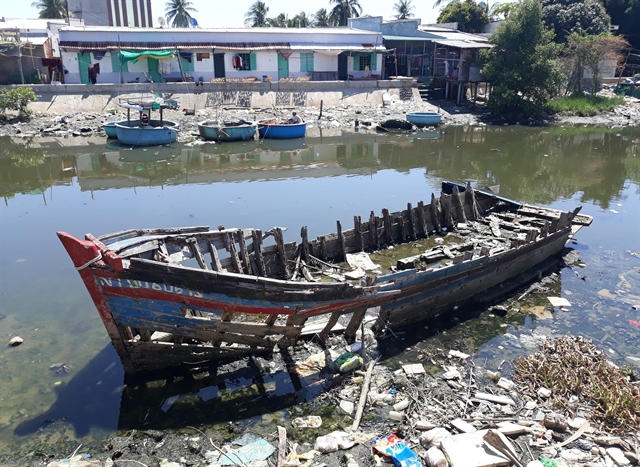Predictions on the intensity and impacts of environmental issues on various aspects of the socio-economy must be highlighted in the draft documents submitted to the 13th Party Congress, says deputy head of the Vietnam Environment Administration (VEA) Nguyen Hung Thinh.

A polluted canal in Phan Rang-Thap Cham City, southern Ninh Thuan Province. —VNA/VNS Photo
Feedback from experts on the Party Congress documents emphasise the harmonisation of socio-economic development and environmental protection. To do this, environmental protection goals “must be at the core of the socio-economic growth target and determines the country’s sustainable development,” according to the VEA.
As environmental issues are affecting various aspects of the socio-economy, it will take a long time to recover from the impacts of pollution as a result of industrialisation and modernisation.
In many documents, Viet Nam highlighted the determination of “not sacrificing environmental protection for economic development”.
Among socio-economic targets in the 2021-25 period, one of the notable goals is to have 100 per cent of polluting facilities treating their waste and emissions. This target seems to be hard to achieve and Viet Nam needs to focus all sources to meet the goal as currently only 66.4 per cent of the facilities are able to address the problem, experts from VEA say.
Thinh says the national development orientations for the 2021-30 period mentioned in the draft Party Congress documents focus on land management but there are no solutions for pollution management as well as environmental protection and response.
Besides completing a legal framework for the mid- and long-term, Viet Nam needs to have an appropriate and effective management model as well as materials, resources and finance to effectively respond to climate change, he says.
He says the compiling committee should propose more solutions on investing in and promoting renewable energy technologies to reduce greenhouse gas emissions and climate change.
We should call for private investment on treating urban solid waste to reduce the State budget on the work, he says.
Some comments suggest preferential policies for production establishments or people who take environmental protection measures.
Thịnh saysin the next five years, the practical solution to respond effectively to climate change and prevent natural disasters is to promote solutions on resource management.
He recommends investment and comprehensive planning of waste treatment infrastructure concentrated in big cities, using recycling technologies, energy recovery and electricity generation.